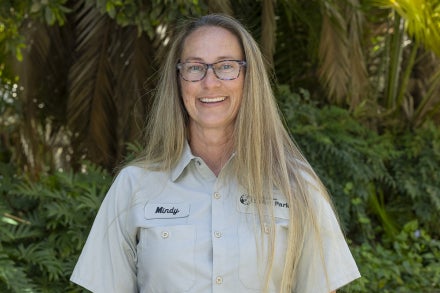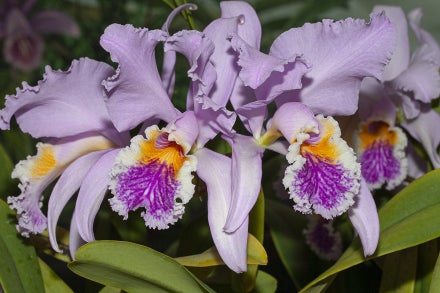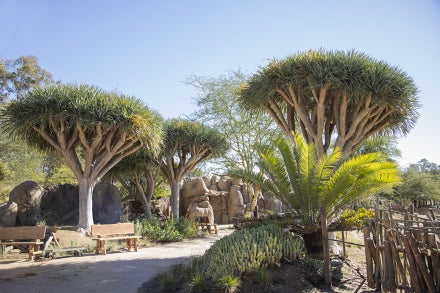
Improving the Odds For Turtle and Tortoise Population Sustainability
In the spring of 2023, we celebrated the one year anniversary of our Wildlife Explorers Basecamp—and for those of us involved in this amazing project, it has been an incredible first year.

Wildlife Explorers Basecamp features many exhibits, including Spineless Marvels and Cool Critters.
Spotted turtles and wood turtles are two species that call the Marsh Meadows habitat at Wildlife Explorers Basecamp home. The group of spotted turtles have settled into their home very well; they are growing and have already welcomed three offspring. These species are some of our guests’ favorites, as they are usually seen swimming and interacting with other turtles in the habitat or basking on logs, in the sunshine. Unfortunately for some wildlife, their appeal can threaten their population sustainability. Many people don’t realize that illegal trade in wildlife is significantly impacting these species.
The number of confiscated North American turtle species increases every year as the demand for them in foreign markets likewise increases. From 2018 through 2021, nearly 20,000 turtles— including box turtles, wood turtles, musk turtles, spotted turtles, and diamondback terrapins—were confiscated on their way out of the US. Unfortunately, this number represents only the ones that were caught. These numbers also do not reflect those turtles exported legally; and in 2018, 1.41 million turtles were sent overseas, mainly to markets in Asia and Europe for the pet trade and food markets. These numbers highlight the demand for turtles, but given the basic biology of many of these species, these numbers are simply not sustainable.

North America is a biodiversity hotspot for turtles—57 species of turtles are found in the US and Canada, including wood turtles (above).
Many of the turtles targeted only lay four to five eggs once per year, and if conditions are not right—such as during drought or when their habitats are poor— they may not nest at all. Turtles and tortoises are also slow to mature, meaning it may take many years before the young turtles are able to reproduce—and young turtles are more susceptible to predators, so many do not make it to maturity.
North America is a biodiversity hotspot for turtles—57 species of turtles are found in the US and Canada, with the US having more species than any other country in the world. Almost 40 percent of our native turtles are threatened with extinction. San Diego Zoo Wildlife Alliance is a Platinum member of the Wildlife Trafficking Alliance, and we partner with various other government agencies to help combat this illicit trade. One of the ways we help is by providing homes for animals directly impacted by wildlife trafficking. The spotted turtles and wood turtles in our Marsh Meadows habitat at Wildlife Explorers Basecamp were rescued from trafficking. We have sent our wildlife care and veterinary staff overseas during other large-scale confiscations, to help provide care to impacted turtles and tortoises in the Philippines and Madagascar.

Young turtles are more susceptible to predators, including spotted turtles (above).
Our hope is that through the work of our partners, more support for stronger regulations at the state level and wildlife law enforcement, paired with demand reduction education and outreach, will help reduce the number of turtles entering the illegal trade. Long-term goals, including understanding genetics and disease risks of the confiscated turtles, can help us create best practices for returning them to native habitats, where they can contribute to healthy turtle populations and healthy environments.
Come visit these turtles and more at the San Diego Zoo to see how San Diego Zoo Wildlife Alliance is working with partners in our Southwest Conservation Hub to turtle and tortoise species.




